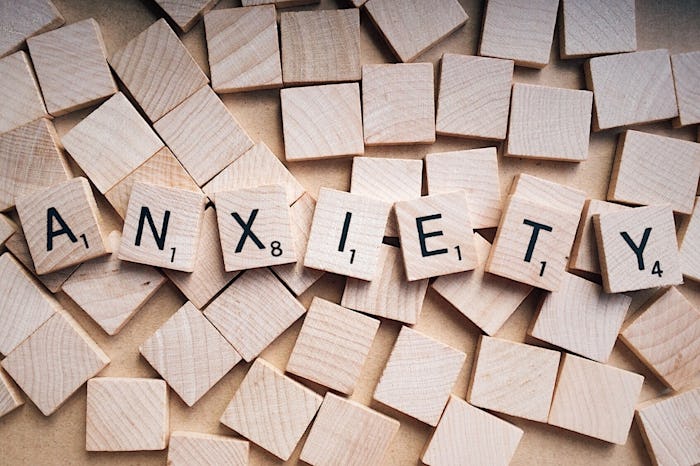Most expectant mothers feel some degree of apprehension about the future. After all, bringing new life into the world is a pretty big deal for most people. But it's important to recognize the signs your prenatal anxiety is actually dangerous, because too much stress may adversely affect you or your baby.
To begin, it's important to understand more about the condition. Prenatal anxiety is described as an excessive level of worry that feels uncontrollable or affects your ability to function in daily life, according to Todays Parent. Beyond simple apprehension about your future parenthood, this level of anxiety may include symptoms such as disrupted sleep, dizziness, or heart palpitations, as further explained by Todays Parent.
It's also worth noting that the condition is far from uncommon. According to Perinatal Anxiety & Depression Australia (PANDA), an estimated 10 percent pregnant women may cope with antenatal anxiety.
Although unhealthy levels of anxiety are a sucky condition for any person to deal with, prenatal anxiety can present some additional challenges. According to WebMD, making your body endure constant stress can overload your stress management system, causing an inflammatory response. Your body is already pretty stressed from the pregnancy alone, so the physical effects of anxiety can further complicate things, possibly leading to an early birth, as further noted by WebMD. Being in panic mode all the time is hard on your system.
Additionally, there are many ways prenatal anxiety may adversely affect your baby. According to the Emory University School of Medicine, maternal stress and anxiety may result in an increased risk of miscarriage, as well as developmental and emotional problems in children. These findings are not unique. As noted in the Encyclopedia on Early Childhood Development, the children of pregnant women with anxiety were twice as likely to develop emotional or behavioral problems than their peers. The exact reasons for these correlations are still being studied, but one thing is clear: maintaining good mental health is crucial for pregnant women in particular.
So how can you best cope with prenatal anxiety? Well, the first step is to accept the seriousness of your condition, and find means to cope with it. For some women, exercise or meditation practices may suffice, whereas others would benefit from therapeutic or medical help. Oh, and if anyone tells you it's nothing major, and the anxiety is all in your head, then you're welcome to suggest they take a long walk off a short pier. (Or something to that effect.) Maintaining self care, not to mention prenatal care, is crucial at this time.
